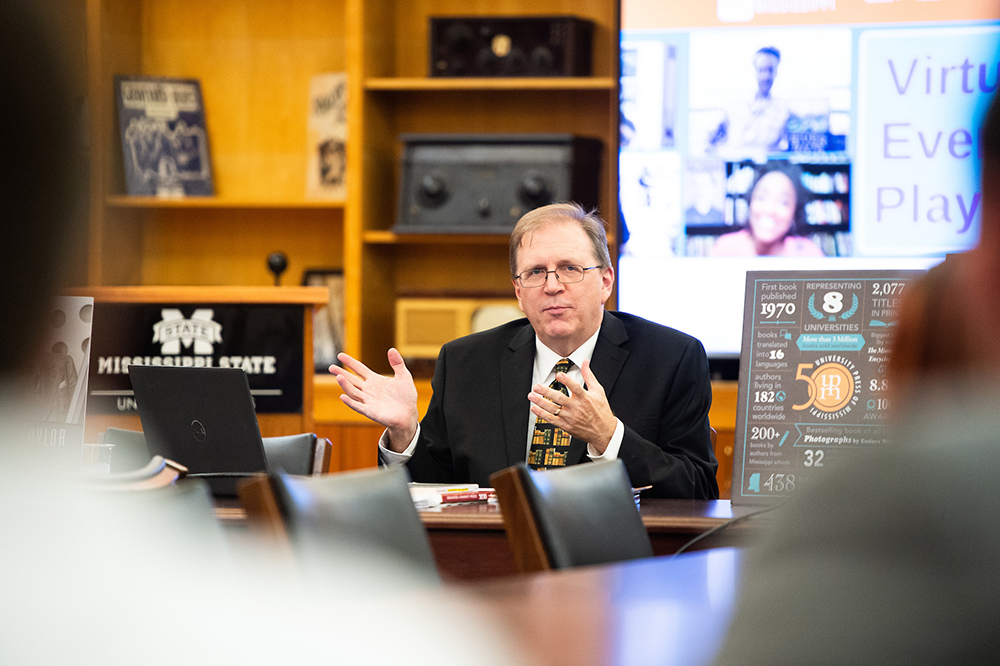UPM director: ‘We publish to, for and about the people of Mississippi’
Contact: Carl Smith

STARKVILLE, Miss.—University Press of Mississippi Director Craig W. Gill guided Mississippi State faculty and staff through his organization’s publication process that supplies books “to, for and about the people of Mississippi and the Gulf South” Tuesday [Oct. 4] at Mitchell Memorial Library’s Charles H. Templeton Sr. Music Museum.

From book proposals and manuscript acquisitions to cover designs and marketing plans, Gill described the nonprofit UPM’s work as a “two-way process” involving both the publishing house and the author through the multiple steps of book creation and distribution.
While on campus, Gill met with MSU President Mark E. Keenum, who has directed the university toward significant support for UPM.
Even though all UPM-published books, whether a scholarly work or a nonacademic read, go through similar production steps—from peer reviews to overall marketing pushes—Gill said the organization focuses on doing what’s best for each individual piece.
“One of the keys for us is that each book gets treated the way it needs to be treated,” he said. “Each book has its own marketing plan; each book has its own design; the printing choices—these are all the things we think about.”
UPM traditionally publishes works rooted in three primary areas: African American history, popular culture and regional studies. Authors with work not directly aligning with these subjects are still encouraged to reach out to UPM, Gill said, because the organization is always looking for opportunities in new fields.
“In the early ’90s, we became one of the first publishers to take popular culture seriously,” he said. “You may not think of Mississippi and comic books as a direct connection, but by working in film, comics and everything associated with popular culture, we got ahead of the curve. We became one of the first presses to do serious academic work in these areas, and now everybody does it. We saw an opportunity in the field, and so we moved into it—that’s something we’re always looking to do.”
Gill encouraged those interested in being published, from graduate students to those with professor emeritus status, to visit the organization’s site, www.upress.state.ms.us, for more information.
Founded in 1970, UPM is supported by the state’s eight public universities and is housed with the Institutions of Higher Learning in Jackson. It publishes approximately 100 books each year. MSU is represented on the UPM board of directors by Don Zant, MSU vice president for finance and administration, and Sid Salter, chief communications officer and director of the Office of Public Affairs.
MSU is Mississippi’s leading university, available online at www.msstate.edu and on Facebook, Instagram and Twitter.